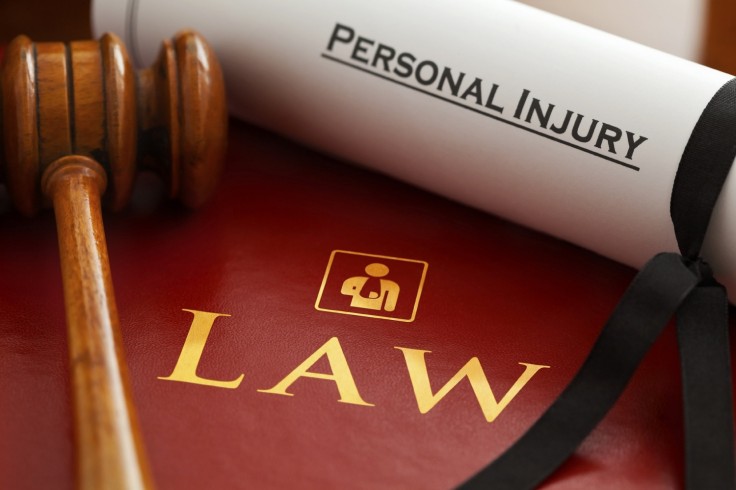
If you decide you'll file a personal injury lawsuit, you may hear your lawyer discuss negligence. Presumably, you already know what that word means. In a courtroom during a personal injury lawsuit, though, it has a specific legal definition.
We will talk about negligence in personal injury lawsuits right now. Several concepts go into establishing negligence. If you can prove that it occurred, you can get the money you need after an individual or entity harmed you.
What Does Negligence Mean in this Context?
Proving negligence in personal injury claims matters a great deal, but before we discuss what enters into it, we should make sure that you understand this term. Negligence in a courtroom setting means that someone had a duty of care or ordinary prudence that should have guided their actions. They didn't behave that way.
In other words, if someone owed you a duty but failed to act, or sometimes, if they acted rashly, that probably constitutes negligence. Maybe they didn't act the way society or their profession demanded.
Any time that negligence comes into play, it means that some person or entity acted in a way other than they should have, as society or some other established code of conduct dictated. If that happened, and you can prove it, you can probably collect some money. You can get the recompense you deserve for this person or entity's failure.
Now, let's talk about what goes into proving negligence in a courtroom during a personal injury case.
Legal Duty of Care
Legal duty of care might mean something a little different, depending on the circumstances. There's a basic idea behind it. It states that a person should act in a certain way. Custom or law dictates that they behave that way.
Drivers have a legal duty of care, for instance. They should follow the speed limit and not drink alcohol excessively before driving. They should use turn signals before switching lanes, not let their smartphones distract them, etc.
Doctors certainly have a duty of care. Their profession dictates that they should give a patient the right medication. They should only operate if they feel that's the right move. They should never operate on a patient if they've stayed awake for a whole day beforehand.
If someone violates the duty of care, that's one element that proves negligence in a courtroom during a personal injury trial.
Breach of Duty
Breach of duty occurs when someone or some entity has a duty of care and they do not follow it. They might have a breach of duty through an action or possibly through inaction.
There's an even more specific definition, though. If you file a personal injury claim and go after a person or entity in court, you must prove that their actions did not meet what society or laws expected from them.
The actions they take, or don't take, might bring civil penalties, criminal ones, or both. You're not pursuing criminal penalties against the person or entity who harmed you, though. The police, prosecutor, and judge can handle that. You're after them for money through a civil action.
Causation
Next comes causation. If you establish a person or entity had a legal duty of care, and they failed to meet it, and they had a breach of duty as well, you're on your way toward proving negligence. You must next establish causation. Sometimes, this proves difficult.
If someone's action or inaction injured you, you must prove that A caused B. You must show the jury that you would not have sustained your injury had the person or entity not acted like they did. If they didn't act, and you injured yourself, that might also meet the causation definition in court.
Let's say that a doctor looked at you, and they didn't notice you had a particular injury, despite you displaying some obvious signs. With the doctor's training and position, they should know those signs and take action.
They didn't do it, though. Consequently, your condition worsened, and now, you have a permanent or debilitating injury from which you might never recover. You can probably establish causation in that instance.
Damages
If you've established the three factors up to this point that go into negligence, you have one more duty, or your lawyer does. You must prove you sustained damages following this person or entity's action or inaction.
Your damages might include nursing care and what it costs. They might include loss of income and benefits if this person or entity's action or inaction caused a situation where you can't work anymore.
They might also include physical therapy costs, personal care, or household services. If the person or entity you're suing did or didn't do something that harmed you, and you can show financial hardship or losses from that, you've just concluded the negligence quartet that should bring you a courtroom victory and some money.
What Happens if You Can Prove All Four Factors?
If you can prove all four factors occurred, then you can establish negligence. Once that happens, the jury should find in your favor. However, you might also have a situation where the person or entity that harmed you realizes things are not going their way.
Their lawyer might suggest that they offer you some settlement money so they don't have a jury's verdict go against them. Despite what you might see on TV, most courtroom cases don't keep going till they reach a jury verdict. Most criminal cases end with a plea bargain, and many civil cases reach a settlement before that point.
If the person or entity that harmed you offers you a settlement, you must decide whether the number makes sense for you. Maybe you feel like it won't cover the tangible damages that you sustained, and also the intangibles, like your pain and suffering.
If the settlement amount doesn't work for you, then you can always keep going and get a jury's verdict.









